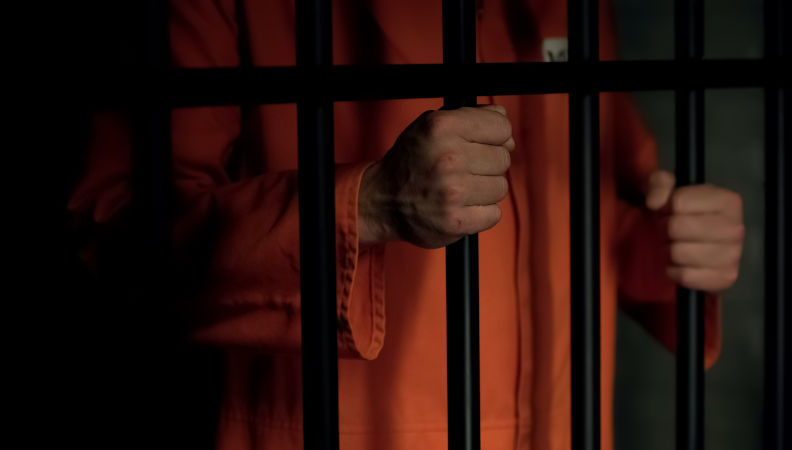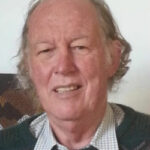
It always helps to have your own house in order before criticising another’s. With other nations, Australia has in recent times been a constant critic of the human rights record of numerous nations, particularly that of China. However, it was Australia itself who last month was subject to a critical report from the U.N. Committee Against Torture.
The committee, in its sixth review of Australian practices, found Australia, in its detention policies, to be failing obligations made under the Convention Against Torture.
Australia is one of 91 signatories to the Convention Against Torture, and the Optional Protocol to the Convention Against Torture (OPCAT). Under the latter the U.N.’s Subcommittee on Prevention of Torture (SPT) can make unannounced visits to places of detention.
To that end a four-member delegation headed by Aisha Shujune Muhammad visited Australia last month, a visit delayed from 2020, due to Covid 19.
A consequence of the visit was Australia making international headlines, when access to facilities was denied to the SPT, by two states, New South Wales, and Queensland. Both states not only actively forbade visits to some centres, but curtailed access to others, while also withholding ‘relevant information and documentation’.
The delegation head asserted, ‘This is a clear breach by Australia of its obligations under OPCAT. State parties have an obligation to both receive the SPT in their territory and allow it to exercise its mandate in full, as reflected in Articles 12 and 14.’
The U.N. Committee responded by suspending its tour of Australian facilities. Announcing the suspension, 23 October, Ms Muhammad, made clear that the decision was not one taken lightly stating, ‘this is only the fourth time in the 15 years of existence of the SPT that a visit has been suspended.’
Speaking of the restrictions placed on the delegation, in a media release announcing the suspension, the U.N. concluded, ‘As a result of this, the SPT members felt that their 12-day visit, which began on 16 October and was due to run until 27 October, had been compromised to such an extent that they had no other option but to suspend it.’
The Australian response was terse.
The NSW Minister for Corrective Services, Geoff Lee, speaking to popularist radio station 2GB, praised police action preventing the committee entering the Queanbeyan prison said, ‘We don’t torture people. Why should I help taxpayers…. foot the bill for the U.N. coming to Australia? Aren’t they better off to go to places like Iran?’ Such statement smugly ignores Australia’s decades long poor record on Indigenous incarceration, and more recent draconian practices on immigration detention.
The state’s premier, Dominic Perrottet claimed that NSW prisons keep, ‘the highest standards anywhere in the world.’ That begs the question, why then deny access to the U.N. committee?
Queensland Health in responding to its actions causing the suspension of the tour, gave the excuse of protecting inpatient’s privacy as the reason for denying access to its facilities.
The U.N. made it clear however that, ‘the work of the SPT is guided by the principles of confidentiality, cooperation, impartiality, and universality. This is the basis on which States parties agree to grant SPT unfettered access to places of deprivation of liberty, and to documentation and persons in such facilities.’
‘The SPT is neither an oversight body, nor does it carry out investigations or inspections. It is a mechanism that makes confidential recommendations to State Parties on establishing effective safeguards against the risk of torture and ill-treatment in places of deprivation of liberty. Despite our numerous efforts to explain our preventive mandate, this was clearly not understood,’ Ms Muhammad concluded.
In response, The Australian Human Rights Law Centre released a statement signed by 79 rights advocates and advocacy groups calling on the NSW and Queensland Governments to fully adhere to Australia’s international treaty obligations on the prevention of torture.
Australia has now joined the ‘illustrious’ ranks of Azerbaijan, Rwanda, and Ukraine, other countries which have failed to provide full access to U.N. inspectors.’
The U.N. Committee expressed concern over Australia’s detention policies on youth and immigration detention, Indigenous incarceration, and Aboriginal deaths in custody.
Prior to the suspension of the tour, the committee received damming testimony from the Australian Human Rights Commission, which in a report submitted noted the ‘over-representation of First Nations people in detention and some really serious issues with youth detention centres.’
First Nations woman, Latoya Rule gave painful personal testimony regarding detention policies applied to Aboriginal people. Her brother, Wayne ‘Fella’ Morrison, died in 2016 after being restrained at the wrists and ankles, placed in a spit hood and carried, face down, chest down into a prison transport van.
Ilvija Pūce, a member of the U.N. Committee Against Torture, to whom the delegation reports, censured Australia, saying, ‘If we talk about the over-representation of Aboriginal people in detention, it really is horrific.’ Noting it is an issue that has been raised for decades, she added, ‘and it’s not yet solved.’
Ms Pūce also was unhappy with the Australian government’s response to the committee’s questions about stopping the use of solitary confinement and restraints on children in youth detention.
Taking issue with Australian immigration policies, another UN Committee Against Torture member, Erdogan Iscan said, Australia’s approach to immigration detention raised ‘significant concern’ for the committee, particularly because of the lack of ‘transparency’ in the system.
‘The committee notes the severe and detrimental impact of immigration detention on the health and psychological health of asylum seekers, who are already victims of torture,’ He inquired as to when Australia would end the mandatory detention of child asylum seekers and only use it as a ‘last resort’ for adults.
The U.N. media release notes, ‘The SPT expects Australia to abide by its international obligations under OPCAT and provide appropriate assurances to satisfy the SPT that no further obstacles will be encountered in fulfilling its mandate so that the visit may be resumed in due course.’
An important part of that will be to fulfil OPCAT obligations to establish National Preventive Mechanisms (NPMs) in each state and territory to oversee prisons and detention centres. These have a fast-approaching deadline of January 2023 but are still to be established in most states and territories.
‘Australia has had five years to establish the NPMs,’ Ms Muhammad said. ‘So having had five years and not being able to establish an NPM speaks for itself.’
She then concluded: ‘Given that OPCAT applies to all federal states without limitations or exceptions, it is concerning that four years after it ratified the Optional Protocol, Australia appears to have done little to ensure consistent implementation of OPCAT obligations across the country, including but not limited to passing overarching legislation to translate its international obligations into domestic law.’
One could only conclude of the whole episode; Australia has emerged with ‘egg on its face.’
The U.N. Media Release may be found here.




